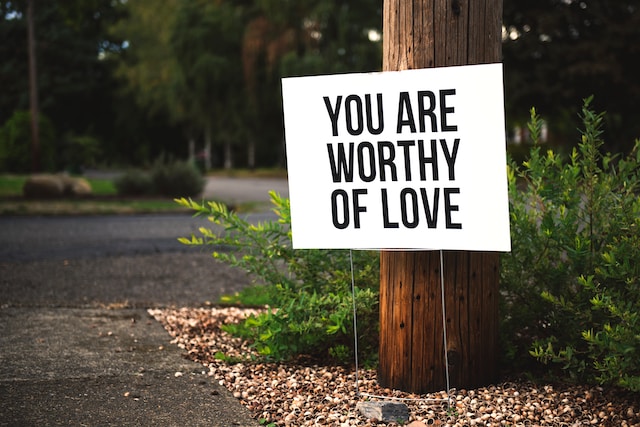

Unconditional Love is Not Unconditional Praise
Several years back now, I had a student who proceeded to give one of the absolute worst video presentations in the long annals of horrendously bad student presentations. Now, I know you’re thinking that I certainly must be involved in some playful hyperbole here, that there is no way that his presentation could have been as bad as I am making it out to be. But trust me when I suggest that no matter what your imagination could possibly conceive of, no matter how preposterously bad you might think it could be, that Aiden’s Greek Mythology presentation on Sisyphus was much, much worse. The video starred himself, for no articulated reason dressed in a leopard-print cat suit, as the ill-fated Sisyphus, along with his younger brother whom he proceeded to inform the audience represented a rock, despite no attempt to provide him with a costume or even a simple sign with the word “rock” written on it. Aiden then proceeded to tell us that Sisyphus was an optimistic story about the power to become whomever we want to be in life (a point he later argued with me vehemently claiming that he knew I was wrong because he had read this on Wikipedia) at which point he rolled his brother down a grassy hill like he was some sort of contestant in the legendary Cooper Hill Cheese Rolling competition. As Aiden and his brother then erupted into an audible exchange that was never cut from the final version of the video (Aiden’s brother apparently never made aware of his impending shoving down the hill), students erupted into laughter. For my part, my favourite element came when Aiden told his classmates that Sisyphus had been based on the story of Jesus Christ, even though Jesus wouldn’t be born for centuries after Sisyphus starting rolling that rock up the hill. In fairness, even Sisyphus would’ve prayed for Christ’s mercy to remove his name from this debacle, but I think he was too busy struggling to get out of the leopard-print cat suit.
Needless to say, Aiden was not particularly pleased when I distributed grade reports to the students the next day in class. Visibly upset, he stayed after class to speak with me about it.
“But, Mr. Craig,” he implored, “I worked really hard on that presentation.”
Taking a moment to pull myself together so that I wouldn’t openly laugh at the prospect, I responded bluntly, “Come on, Aiden, we both know that isn’t true.”
“But don’t you love me, Mr. Craig? I thought you said you loved your students and would do anything for us. How is this grade unconditional love?”
I looked at him sternly and said, “Unconditional love, Aiden, is not unconditional praise. I do love you, but your presentation was still awful.”
And it is the failure to distinguish between those two things, my friends, that is the root cause of much what is wrong in our society today….
I love my kids. I really do. I’m not saying that they aren’t exasperating from time time to time, but I love them nonetheless. Oh who am I kidding, they’re more than just a bit annoying; sometimes they are a downright pain in the ass. But that doesn’t change how much I love them. I love them no matter what they do- that’s what unconditional love is all about. We love them no matter what they do or how much they drive us fucking nuts. I have always said that each and every kid needs at least one person, just one, who loves them unconditionally in order for them to be successful. But unconditional love is not unconditional praise.

Just because I will always love you as a person, no matter what you do, or say, or in this case, wear, doesn’t mean that I will universally condone or support your behaviour or choices. My stepmother once taught a student who robbed a liquor store wearing his football jersey with his name on the back. His poor choice didn’t cause her to stop loving him, but it also didn’t stop her from telling him what a dumbass he was. If my son walks through the door chainsmoking cigarettes and sporting a brand new Kid Rock tattoo, I am still going to love him, but I am definitely going to smack him straight across the head (metaphorically speaking, of course).
That’s because love means caring enough to hold the people we love accountable for their actions and decisions. It means sometimes having hard conversations and establishing the expectations that will help them grow into their best selves. When your kid blows a Biology test because they were up all night watching YouTube videos instead of studying, it’s not just ok to tell them that they blew it- it’s your job. That’s because love means caring enough to criticise.
But that’s something our generation of parents just seems reticent to do. We want to be buddies with our kids so we refrain from telling them when they have fucked up. We’re worried about them being upset with us for not being supportive enough so we gloss over their indiscretions and screw ups and praise them for “trying”. But failing to hold them accountable is not love, it’s avoidance and negligence. It represents a lost opportunity to help them do better going forward, to becoming better people in the long run. And so we have inadvertently created a generation of self-entitled brats who think they can do no wrong.
No wonder then why employers suggest that this generation of young workers feels they should be congratulated just for showing up, that they expect to be financially rewarded and promoted even when they show up late, give lacklustre effort, and show little desire for improvement through feedback that is constructively critical. These kids don’t want to get better because they believe they are already good enough, even when they’re not. They want to be treated like they’ve gone above and beyond even when they have gone neither above nor beyond.
Should you still tell them you love them when they fail to do so? Of course you should. And then you should give them a quick kick in the ass and tell them to earn that praise instead of expecting it without merit. Because in the end, that’s what real love is all about.
Steven Craig is the author of the best-selling novel WAITING FOR TODAY, as well as numerous published poems, short stories, and dramatic works. Read his blog TRUTH: In 1000 Words or Less every THURSDAY at www.waitingfortoday.com



